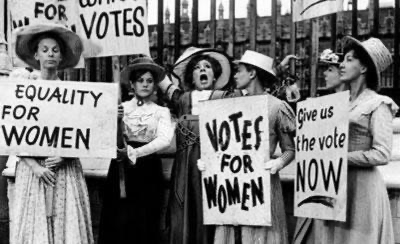“The right of citizens of the United States to vote shall not be denied or abridged by the United States or by any State on account of sex.”
August 18, 2020 will mark the 100th anniversary of the passage of the 19th Amendment. As organizations and public leaders plan to commemorate this milestone, there is an opportunity to leverage this moment to activate inclusive civic engagement.
Pam Jeffords, Partner Diversity & Inclusion at PwC US, points out that the 19th Amendment did not enfranchise all women, and that in fact, many were prohibited or prevented from voting based the color of their skin, their income, or their education.
For example, the 19th Amendment may have technically given Black women the right to vote. However, the existence of Jim Crow laws prevented many from exercising their rights until the passage of the Voting Rights Act of 1965. Although women of color rallied for the right to vote for all women, many remained disenfranchised compared to White suffragists.
Today, the make-up of our country is overwhelmingly diverse. We are all intersectional. Our overlapping social and political identities – such as race, ethnicity, gender, ability, and sexuality — determine how we show up in society, the workplace, and in our social circles. It is imperative for leaders and employers to recognize that our experiences are different.
Jeffords also notes that by acknowledging differences in the workplace and removing biases, individuals are more likely to build trust and feel valued. This is a crucial first step.
Organizations and companies have a unique opportunity to leverage the centennial anniversary to reflect on how far we have come but also create a call to action on how much more there is left to do in terms of equality.
By encouraging civic engagement, such as sharing resources for employees to register to vote and having flexible work hours on election day, companies can drive real and targeted action.
2020 has shaped up to be a year of transformational change. In the wake of recent racial justice protests, many can argue that we are experiencing our generation’s civil rights moment.
Regardless of living through a global pandemic, recession, and evolving political climate, individuals across all generations are activated to speak up and hold each other accountable. How society views companies and their responses to this moment will set a precedent for how we engage with these companies in the future.
As important as it is to celebrate the Centennial anniversary of the 19th Amendment, it is equally as important to use this moment to empower the voices of those who have been historically overlooked.
Doing so will set the stage for the next 100 years.
